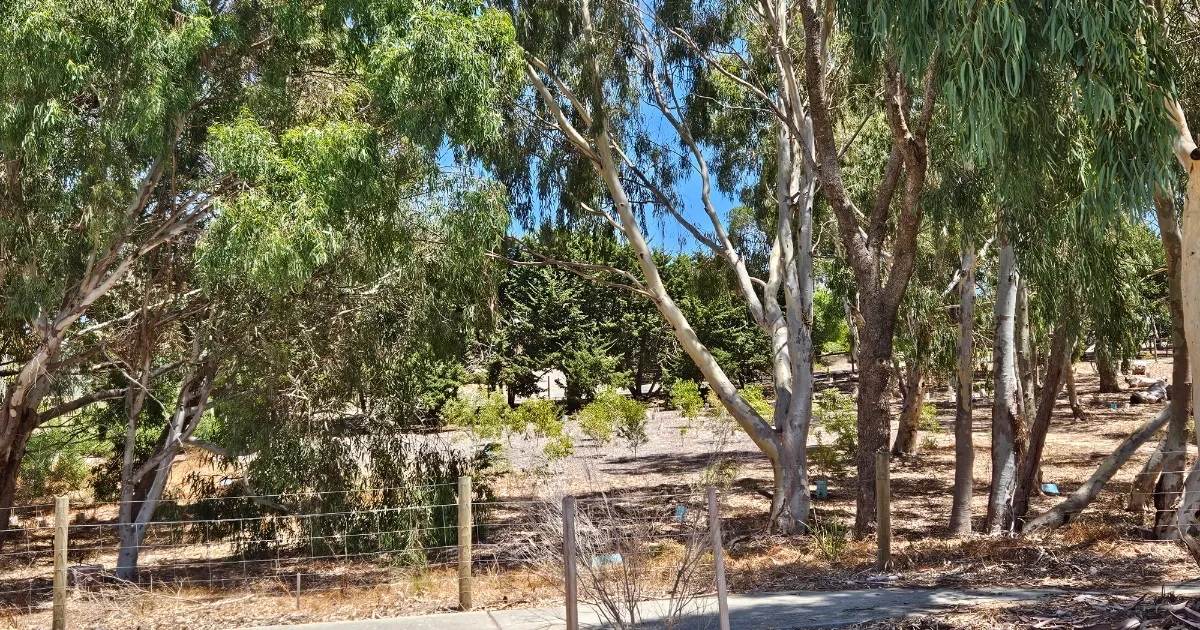
Waterwise trees to plant
Picture this: your own slice of paradise, right on the garden verge, bursting with the vitality of nature's finest, and all the while conserving water.
Australia is a beautiful country full of diverse landscapes and climates, ranging from the hot and dry deserts in the center to the wet tropical forests in the north. No matter where you live, water conservation is an essential issue to be aware of, particularly when it comes to maintaining gardens. One of the best ways to reduce water use is by planting trees that are adapted to your climate and the local growing conditions, so they can thrive with minimal watering. In this blog post, we'll explore some of the best waterwise trees that you can plant on your garden verge in different regions of Australia.
Coastal regions
If you live near the coast, your climate is likely to be mild and relatively wet, but you might have to deal with salt spray and strong winds. In such conditions, some good options for waterwise trees include Tea Tree (Leptospermum spp.), Coastal Banksia (Banksia integrifolia), and Lilly Pilly (Acmena smithii). These trees are all native to Australia and are well adapted to the local conditions, requiring little to no watering once established. They also provide habitat and food for local wildlife such as birds and insects.
Temperate zones
If you live in the southeastern states, such as Victoria, New South Wales, or Tasmania, you'll experience a temperate climate that's cooler and wetter than the tropical north, but still prone to drought in summer. Here, some of the best waterwise trees to plant on your garden verge include Eucalyptus (Eucalyptus spp.), Blackwood (Acacia melanoxylon), and Crepe Myrtle (Lagerstroemia indica). These trees have deep root systems that can tap into underground water reserves, making them more resilient to dry periods.
Arid regions
If you live in the interior of Australia or in regions with low rainfall, you'll need to choose trees that are highly adapted to arid conditions and can survive with minimal watering. Some excellent options for waterwise trees in such areas include Mulga (Acacia aneura), Desert Oak (Allocasuarina decaisneana), and Ghost Gum (Corymbia aparrerinja). These trees are all native to the arid regions of Australia and have evolved sophisticated mechanisms to conserve water and tolerate extreme temperatures.
Tropical areas
If you live in the northern parts of Australia, where the climate is tropical and wet, you have plenty of options for waterwise trees that can flourish in such conditions. Some of the best choices include Mango (Mangifera indica), Jacaranda (Jacaranda mimosifolia), and Flame Tree (Brachychiton acerifolius). These trees are all well adapted to the heat and humidity of the tropics and can grow quickly with regular watering. They also provide shade and beauty to your garden, creating a lush oasis in an otherwise arid environment.
Other considerations
When choosing waterwise trees for your garden verge, it's important to consider factors such as soil type, sunlight exposure, and local regulations. Some trees may be invasive or not suitable for your area, so it's best to consult with a local horticulturist or nursery to select the right species for your needs. You can also look for trees that have received the Waterwise Plant Label, a certification provided by the Water Corporation in Western Australia to plants that have been tested for their water-saving qualities.
Waterwise trees are a smart and eco-friendly choice for any garden, particularly in Australia's harsh and arid climate. By selecting trees that are adapted to your local conditions and require minimal watering, you can reduce your water bill, conserve precious resources, and create a beautiful and sustainable garden that benefits both humans and wildlife. Whether you live on the coast, in the bush, or in the city, there's a wide variety of waterwise trees that can thrive in your garden and enhance your local environment. So why not plant a tree or two today and start enjoying the many benefits that nature has to offer?
22 Jan 2024


